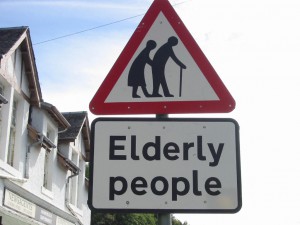In rheumatoid arthritis, standard heart disease risk tools underrate danger!
Patients suffering from rheumatoid arthritis, or RA for short, are at higher risk for heart disease. Among experts that’s a matter of common knowledge (fortunately and increasingly that is basic knowledge among patients, too!).

Watch out, doctors! – In elderly rheumatoid arthritis patients commonly used heart disease risk assessment tools regularly fail, according to a current study. – © Robbie Ribeiro
On a less positive note, commonly used heart disease risk assessment tools seem to be inadequate for estimating the risk of cardiovascular disease danger faced by RA patients. That is what a brand-new study found.
In this blog article I summarise the main results of the research done at Mayo Clinic in Rochester, Minnesota (USA). The study is entitled Usefulness of Risk Scores to Estimate the Risk of Cardiovascular Disease in Patients With Rheumatoid Arthritis, and it has been published online on 20th April 2012 in The American Journal of Cardiology.
Heart disease risk in RA: More accurate assessment tools needed
The study estimated the accuracy of the Framingham and Reynolds risk scores, two tools commonly used by physicians for assessing patients’ heart disease danger. The scientists found that these two assessment tools substantially underrated cardiovascular disease danger both in women and men suffering from rheumatoid arthritis. In particular, that happens in older patients. Interestingly enough, it also happens in people who test positive for rheumatoid factors. (more…)







